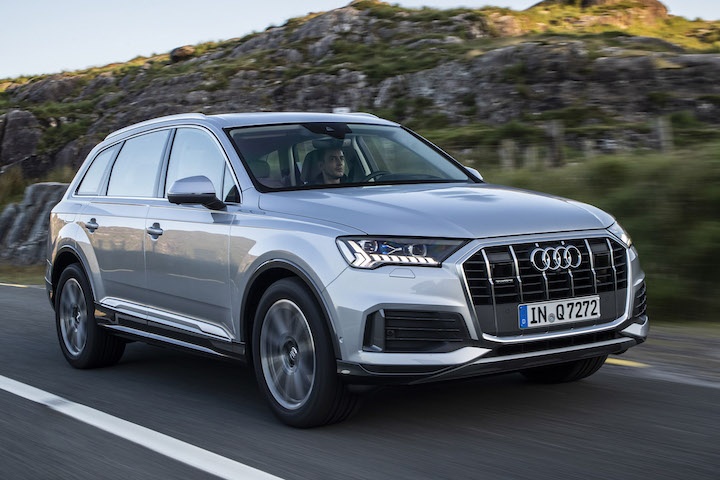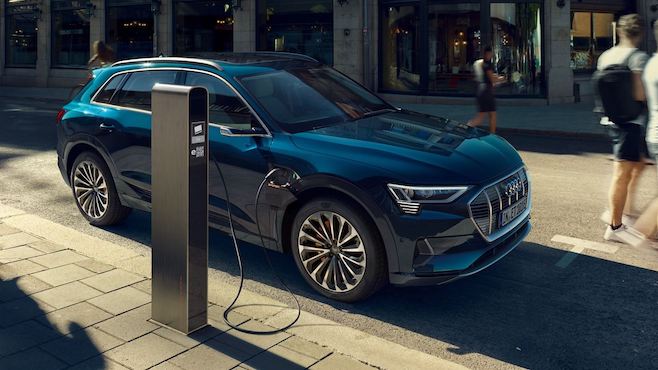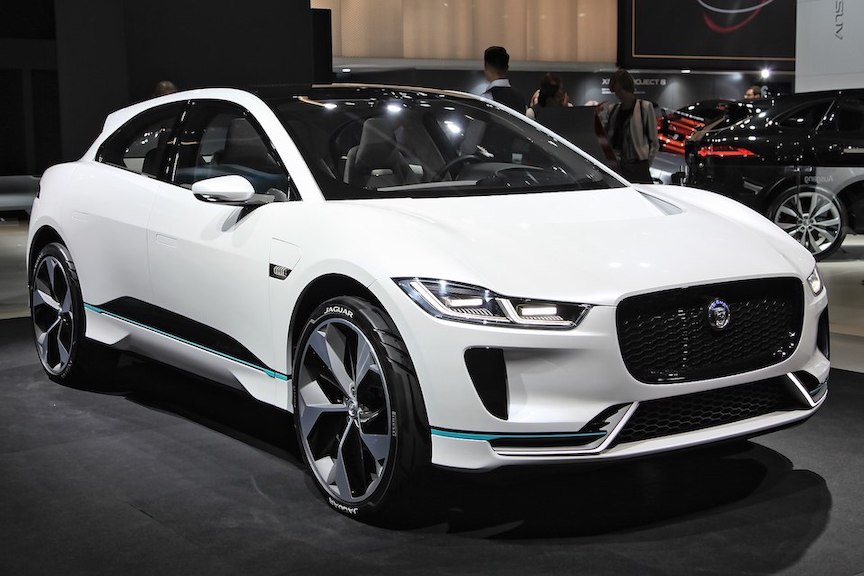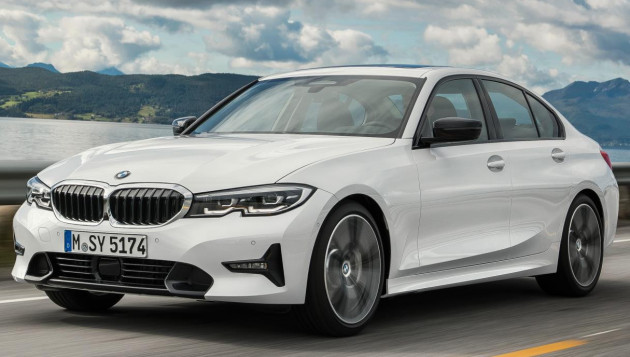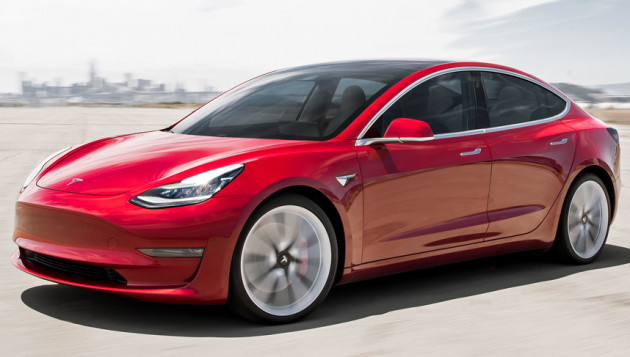Business Grants & Incentives
There are a huge amount of grants and incentives to help businesses go electric. We’ve put together this guide to help you see how you could benefit.
Electric Van Plug-in grant
You can get a discount on the price of a brand new low-emission van through a grant that the government gives directly to vehicle dealerships and manufacturers.
Conveniently, you do not need to do anything to claim the grant if you want to buy one of these vans - the dealer will simply include the value of the government grant, therefore, reducing your purchase price.
The value of the plug-in van grant varies according to the size of the van it’s being applied to. Eligible vans with a gross vehicle weight (GVW) of less than 2.5 tonnes can receive as much as 35 per cent of the purchase price, up to a maximum sum of £2,500.
Buyers of eligible vans with GVWs of between 2.5 and 3.5 tonnes receive up to 35 per cent of the vehicle’s purchase price, but the cap is set higher at £6,000. Eligible vans with GVWs of 3.5 tonnes or more are catered for by a grant for small trucks - this is worth up to 35 per cent of the vehicle’s value, with a cap of £5,000.
You can claim a total of 1000 plug-in van and truck grants for your business or organisation each year. This limit resets every year on 1 April.
If you want clarity over the eligibility of a van you are considering you can find a full list of eligible vehicles here: https://www.gov.uk/plug-in-car-van-grants

Plug-in Car Grant
The Government Plug-in Car grant will pay for 35% of the purchase price for eligible vehicles, up to a maximum of £1,500. The car must have a list price below £32,000, however any optional equipment selected by the customer is not included in the calculated list price. Eligible cars must also have CO2 emissions of less than 50g/km, be able to travel at least 70 miles without emitting any CO2 and be on the OZEV’s approved list.
You will not need to do anything to claim the grant if you want to buy one of these vehicles - the dealer will simply include the value of the government grant therefore reducing your purchase price. You can find more information and a full list of eligible vehicles here: https://www.gov.uk/plug-in-car-van-grants
More information can be found on our Grants & Incentives Guide (link).

Workplace Charging Scheme
The Workplace Charging Scheme (WCS) is a voucher-based scheme designed to provide eligible businesses, charities and public sector organisations with financial support towards the costs of the purchase and installation of EV charge points.
The contribution is limited to 75% of the purchase and installation costs, up to a maximum of £350 for each socket and a maximum of 40 across all sites for each applicant.
If you’d like to know more about getting some chargers installed at work, get in touch.

Congestion Charge & ULEZ Exemption
Congestion Charge
One of the great benefits of having an EV is Congestion and ULEZ exemption.
The Congestion Charge is a £15 daily charge incurred by drivers who enter the London Congestion Charge zone between the hours of 07:00-22:00 and is applicable every day with the exception of Christmas Day (the 25th December).
There is currently a ‘Cleaner Vehicle Discount’ which exempts some vehicles from having to pay the congestion charge. Currently, only vehicles that meet Euro 6 standards (petrol and diesel) and that emit no more than 75g/km of CO2 and have a minimum 20 mile zero-emission capable range will qualify for the 100% cleaner vehicle discount.Though it is worth noting that from 25 October 2021, the cleaner vehicle discount will change so that only battery electric or hydrogen fuel cell vehicles will be eligible.
You can check the CO2 emissions of your car on the V5C registration document. If the Euro standard of your vehicle is not shown on the V5C you can check it with the franchised dealer or the vehicle manufacturer.
More information on the exemption can be found here.
ULEZ
A ULEZ or Ultra Low Emission Zone charge also exists in the same area as the Congestion Charge in London. This is in operation 24 hours a day, 7 days a week, every day of the year (except Christmas Day.)
ALL pure Electric Vehicles are exempt from the ULEZ charge.
If vehicles don’t meet the ULEZ emissions standards or their drivers must pay a daily charge to drive within the zone. This is:
- £12.50 for most vehicle types, including cars, motorcycles and vans (up to and including 3.5 tonnes)
- £100 for heavier vehicles, including lorries (over 3.5 tonnes) and buses/coaches (over 5 tonnes)
From 25 October 2021, the ULEZ will be expanding to create larger zone up to, but not including, the North Circular Road (A406) and South Circular Road (A205). Find out how to prepare for the ULEZ expansion.
Don’t have an EV yet, search available electric vehicles here.

Benefit In Kind
Company Car Tax (officially known as Benefit in Kind tax or BIK) is the tax paid by an individual on the ‘benefit’ of receiving a company car for personal use.
From April 2021 there is a 1% tax rate on Benefit in Kind applicable to electric vehicles during 2021 / 2022.
This also applies to hybrid vehicles with emissions from 1 - 50g/km and a pure electric range of over 130 miles.
The government has offered confirmation on tax rates for electric vehicles for the next few years to support businesses in planning ahead with their mobility purchasing decisions and policies. Confirming that the electric car benefit in kind rate will only increase to 2% in 2022/23. The Chancellor also announced that rates will then be frozen for the following two financial years, 2023/24 and 2024/25. This makes an electric vehicle an incredibly attractive choice for would-be company car drivers motivated to secure considerable tax benefits!
HMRC Company Car and Car Fuel Benefit Calculator: http://cccfcalculator.hmrc.gov.uk/CCF0.aspx
|
The Audi e-tron could save you £9,624 in Company Car tax this year. |
|
|
Audi Q7 |
AUDI e-tron |
|
List Price (P11D) |
List Price (P11D) which includes the Govt. plug-in grant |
|
BIK percentage charge |
BIK percentage charge |
|
Benefit in kind (2021-22) |
Benefit in kind (2021-22) |
|
Tax payable at 20% |
Tax payable at 20% |
|
Tax payable at 40% |
Tax payable at 40% |
BIK Reporting Requirements
It is worth noting that as an employer you must submit an end-of-year report to HMRC for each employee you’ve provided with expenses or benefits in the tax year ending 5 April. Reports would be due for submission prior to July 6th and further guidance can be found here: https://www.gov.uk/guidance/report-end-of-year-expenses-and-benefits-online

Employer Class 1A National Insurance Contributions (April 2021 to March 2023)
To reflect the benefit-in-kind provided, Class 1A National Insurance Contributions (NICs) must be paid by the employer for each vehicle provided to an employee for personal use.
Fortunately, there are benefits to be had through electrification here too. As with company car tax, Class 1 are NICs based on the vehicle's P11D value and relevant BIK rate, meaning EVs offer a cost saving company car option for employers as well as employees.
The level of NI contributions is determined by an annual percentage rate announced in the Budget – which is currently 13.8% for the financial year 2021/22.
The basic calculation to determine the amount of Class 1A NICs payable in 2021/ 2022 being: NI Contributions = P11D value x ‘BIK rate based on CO2’ x 13.8%.
- For example: On the BIK calculation above (Q7 and e-tron) the employer would save £3,226 in Class 1A NIC as the e-tron would pay £96 in Class 1a NIC.

Capital Allowances on Electric Vehicles
Organisations can claim a 100% first-year allowance on the cost of buying a new electric vehicle that they use in their business. This means you can deduct the equivalent value of this vehicle from your accounting profits before subject to tax
On a car costing around £40,000 this could amount to a tax relief of £7,600 in the first year.
|
Accounting Profit |
£100,000 |
£100,000 |
|
Less Capital Allowances |
|
£40,000 |
|
Taxable profit |
£100,000 |
£60,000 |
|
Tax @ 19% |
£19,000 |
£11,400 |
|
Tax Saving |
|
£7,600 |
The full breakdown of all of the new bands of emissions which affect capital allowances can be found here: https://www.gov.uk/capital-allowances/business-cars
Capital Allowances on Electric Charge points
In regards to First Year Allowances on Charge Points the government has extended the current 100% first year allowance for expenditure incurred on electric vehicle charge point equipment for a further four years up to 31 March 2023 for corporation tax purposes and 5 April 2023 for income tax purposes.
With further details to be found here: https://www.gov.uk/hmrc-internal-manuals/capital-allowances-manual/ca23153

Vehicle Excise Duty (Road Tax)
Electric Vehicles are currently exempt from the annual Vehicle Excise Duty all UK motorists pay in order to drive on British roads, more popularly known as ‘Road Tax’
Interestingly, from April 1st 2020 until March 31st 2025 all zero emission vehicles will also be exempt from the Vehicle Excise Duty ‘expensive car supplement,’ usually applied to all cars with a list price above £40,000. This equates to a further annual saving of £325 for five years from the second time a vehicle is taxed regardless of the electric vehicle's initial purchase price.
It is worth noting that even if your EV qualifies for the exception of VED you still have to tax your vehicle annually on the HMRC's website: https://www.gov.uk/vehicle-tax.
|
The Jaguar I-PACE could save you £2,255 in VED Road Tax over three years when compared to the Jaguar F-Pace |
|
|
JAGUAR F-Pace |
JAGUAR I-PACE |
|
'On the road' price |
'On the road' price (inc. the Govt. plug-in grant) |
|
P11D value |
P11D value |
|
PETROL |
ELECTRIC |
|
VED Road Tax for First Year |
|
|
£1,305 |
£0 |
|
Annual VED Road Tax |
|
|
£475 (premium rate) |
£0 |
|
TOTAL |
|
|
£2,255 |
£0 |
Fuel Benefit Charge
It was confirmed that from the 6th of April 2018 no benefit in kind will be incurred where fuel is provided for an electric car, making workplace charging an attractive perk for the EV driver. The legislation was also included in the Finance Act 2019 that will give this retrospective effect where charging facilities are made available to all employees at the workplace.

Advisory Fuel Rates
The advisory fuel rate for fully electric vehicles has been confirmed by HMRC as 4 pence per mile. https://www.gov.uk/guidance/advisory-fuel-rates
Where the employee uses their own electric car for business journeys, the company can pay the normal tax free mileage allowance to the individual of 45p per mile for the first 10,000 miles driven in the year, with additional business miles reimbursed at 25p per mile.

Van Benefit Charge
For companies considering electrification, there are further tax savings opportunities available in the way of Van Benefit Charge.
Van benefit charge is typically applied when an employee is given a van for private use, incurring a rate of £3,430. Currently, zero-emission vans incur only 60% of this charge with plans for the rate to increase as time progresses and until the figures are equal regardless of fuel type. So if you want to save - go electric sooner rather than later!
Electric vans also offer fuel benefit savings as the van fuel benefit charge is applied when an employee is given a van and the company pays for the fuel. However, as electricity is not treated as fuel, no tax is required (However, this only applies if the vehicle is charged in the workplace)
For more information on these and all available tax benefits, visit the government page on low emissions vehicle taxation. https://assets.publishing.service.gov.uk/government/uploads/system/uploads/attachment_data/file/709655/ultra-low-emission-vehicles-tax-benefits.pdf
Lower fuel costs
Not only is there a cost benefit with electric cars over petrol/diesel when it comes to road tax and company car tax but there are also significant savings to be made from the everyday lower fuel costs of an EV. A straightforward comparison illustrating the benefits below:
|
The Tesla Model 3 could save you £1,587.75 per year in fuel costs |
|
|
BMW 3 Series
|
Tesla Model 3
|
|
‘On the road’ price |
‘On the road’ price (inc. the Govt. plug-in grant) |
|
Cost per mile |
Cost per mile |
|
That’s 207% more in the non EV! |
|
|
50 mile journey cost |
50 mile journey cost |
|
Daily 50 mile journey over 1 year |
Daily 50 mile journey over 1 year |
|
Based on:
|
|
Salary Sacrifice

Salary Sacrifice schemes are designed for employees to forgo a portion of their salary in exchange for a non-monetary benefit, with potential taxable benefits in doing so.
At present, a vehicle salary sacrifice scheme is most beneficial when employees choose an electric vehicle as their company car (due to its remarkably low ‘Benefit In Kind’ tax) which provides a significant saving in comparison to income tax.
https://www.gov.uk/guidance/salary-sacrifice-and-the-effects-on-paye
https://www.gov.uk/hmrc-internal-manuals/employment-income-manual/eim42750
Leasing a car
If you lease a car, you can usually claim 50% of the VAT. You may be able to reclaim all the VAT if the car is used only for business and is not available for private use, or is mainly used:
- as a taxi
- for driving instruction
You can usually reclaim the VAT for:
- all business-related running and maintenance costs, such as repairs or off-street parking
- any accessories you’ve fitted for business use
You can do this even if you cannot reclaim VAT on the vehicle itself. https://www.gov.uk/reclaim-vat/cars
If you’d like to know more about getting EVs for your business. Get in touch with an advisor now.






.jpg)

